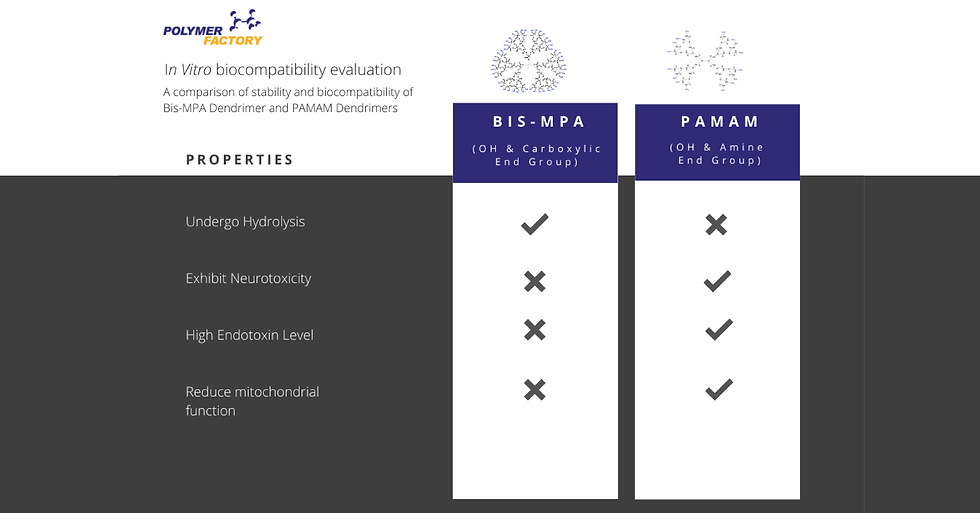A Comparison of Material Stability and Biocompatibility of Bis-MPA Dendrimers and PAMAM Dendrimers
- PolymerFactory
- Jan 24, 2020
- 1 min read
Discovering Biomedical Application of Bis-MPA Dendrimers

Due to the well-defined structure, functionality, and dimensions of dendrimers, it is highly flexible and tailorable to suit the needs of a range of biomedical applications such as drug delivery and medical imaging.
To better understand the unique features of bis-MPA dendrimers an in vitro biocompatibility evaluation study of stability and biocompatibility was performed by comparing to a library of bis-MPA aliphatic polyester dendrimers and commercially available PAMAM dendrimers.
Bis-MPA dendrimers used in the cell viability studies on human cervical cancer(HeLa) and acute monocytic leukemia cells (THP.1) demonstrated a high level of biocompatibility without exerting any form of time-dependent or dose-dependent cytotoxicity on cell lines and macrophages as compared to PAMAM dendrimers. Furthermore, the degradability and stability of the bis-MPA dendrimers were also assessed at different pH, temperature, and time. As a conclusion, it was found that bis-MPA dendrimer depolymerize efficiently as well as exhibits an increase in stability at low pH, all at the physiological relevant window.
Although several biomedical applications based on bis-MPA dendrimers have been suggested including therapeutically important pre-clinical studies, a large portion of the research community is still unaware of the potentials and impact the bis-MPA dendritic technology could bring to the field of biomedical research.
In the coming series of posts, Polymer Factory hopes to help you better understand our materials and discover potential ways that they might impact your existing or future research.
To find out more about the specific materials used in the study please refer to the research paper below:

Comentarios